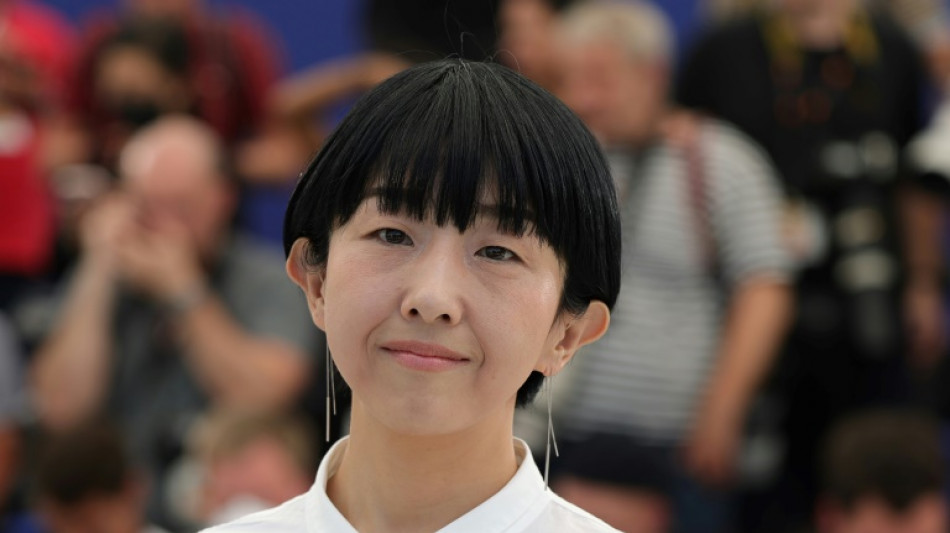
-
 Sarr strikes as Palace end winless run at Brighton
Sarr strikes as Palace end winless run at Brighton
-
Olympic star Ledecka says athletes ignored in debate over future of snowboard event

-
 Auger-Aliassime retains Montpellier Open crown
Auger-Aliassime retains Montpellier Open crown
-
Lindsey Vonn, skiing's iron lady whose Olympic dream ended in tears

-
 Conservative Thai PM claims election victory
Conservative Thai PM claims election victory
-
Kamindu fireworks rescue Sri Lanka to 163-6 against Ireland

-
 UK PM's top aide quits in scandal over Mandelson links to Epstein
UK PM's top aide quits in scandal over Mandelson links to Epstein
-
Reed continues Gulf romp with victory in Qatar

-
 Conservative Thai PM heading for election victory: projections
Conservative Thai PM heading for election victory: projections
-
Heartache for Olympic downhill champion Johnson after Vonn's crash

-
 Takaichi on course for landslide win in Japan election
Takaichi on course for landslide win in Japan election
-
Wales coach Tandy will avoid 'knee-jerk' reaction to crushing England loss

-
 Sanae Takaichi, Japan's triumphant first woman PM
Sanae Takaichi, Japan's triumphant first woman PM
-
England avoid seismic shock by beating Nepal in last-ball thriller

-
 Karl defends Olympic men's parallel giant slalom crown
Karl defends Olympic men's parallel giant slalom crown
-
Colour and caution as banned kite-flying festival returns to Pakistan

-
 England cling on to beat Nepal in last-ball thriller
England cling on to beat Nepal in last-ball thriller
-
UK foreign office to review pay-off to Epstein-linked US envoy

-
 England's Arundell eager to learn from Springbok star Kolbe
England's Arundell eager to learn from Springbok star Kolbe
-
Czech snowboard great Ledecka fails in bid for third straight Olympic gold

-
 Expectation, then stunned silence as Vonn crashes out of Olympics
Expectation, then stunned silence as Vonn crashes out of Olympics
-
Storm-battered Portugal votes in presidential election run-off

-
 Breezy Johnson wins Olympic downhill gold, Vonn crashes out
Breezy Johnson wins Olympic downhill gold, Vonn crashes out
-
Vonn's Olympic dream cut short by downhill crash

-
 French police arrest five over crypto-linked magistrate kidnapping
French police arrest five over crypto-linked magistrate kidnapping
-
Late Jacks flurry propels England to 184-7 against Nepal

-
 Vonn crashes out of Winter Olympics, ending medal dream
Vonn crashes out of Winter Olympics, ending medal dream
-
All-new Ioniq 3 coming in 2026

-
 New Twingo e-tech is at the starting line
New Twingo e-tech is at the starting line
-
New Ypsilon and Ypsilon hf

-
 The Cupra Raval will be launched in 2026
The Cupra Raval will be launched in 2026
-
New id.Polo comes electric

-
 Iran defies US threats to insist on right to enrich uranium
Iran defies US threats to insist on right to enrich uranium
-
Seifert powers New Zealand to their record T20 World Cup chase

-
 Naib's fifty lifts Afghanistan to 182-6 against New Zealand
Naib's fifty lifts Afghanistan to 182-6 against New Zealand
-
Paul Thomas Anderson wins top director prize for 'One Battle After Another'

-
 De Beers sale drags in diamond doldrums
De Beers sale drags in diamond doldrums
-
NFL embraces fashion as league seeks new audiences

-
 What's at stake for Indian agriculture in Trump's trade deal?
What's at stake for Indian agriculture in Trump's trade deal?
-
Real Madrid can wait - Siraj's dream night after late T20 call-up

-
 Castle's monster night fuels Spurs, Rockets rally to beat Thunder
Castle's monster night fuels Spurs, Rockets rally to beat Thunder
-
Japan votes in snow-hit snap polls as Takaichi eyes strong mandate

-
 Pakistan's capital picks concrete over trees, angering residents
Pakistan's capital picks concrete over trees, angering residents
-
Berlin's crumbling 'Russian houses' trapped in bureaucratic limbo

-
 Neglected killer: kala-azar disease surges in Kenya
Neglected killer: kala-azar disease surges in Kenya
-
Super Bowl set for Patriots-Seahawks showdown as politics swirl

-
 Sengun shines as Rockets rally to beat NBA champion Thunder
Sengun shines as Rockets rally to beat NBA champion Thunder
-
Matsuyama grabs PGA Phoenix Open lead with Hisatsune one back

-
 How Dental Implants Can Improve Your Quality of Life in Bonita Springs
How Dental Implants Can Improve Your Quality of Life in Bonita Springs
-
Washington Post CEO out after sweeping job cuts


Kill Japan's elderly? Cannes film probes chilling idea
A Japanese film-maker is shaking Cannes film audiences to the core with a dystopian vision of her country in which old people agree to be euthanised to solve the challenge of a rapidly ageing population.
"Plan 75" by Japanese director and writer Chie Hayakawa is based on a very real problem.
Japan is the most rapidly-ageing industrial society, a trend that is causing huge economic and political problems as a dwindling number of younger people must support a growing army of the old.
Close to 30 percent of Japan's population is over 65, the majority women, and that rate is expected to continue rising in coming decades.
In the movie, anybody over 75 is encouraged to sign up for a deal with the government by which they receive a sum of money in return for agreeing to be euthanised. A collective funeral is thrown in for free.
Slick ad campaigns and calls from people with soothing voices are part of the effort to get people to sign up. Handsome advisors list the small pleasures candidates could afford with the money. "You'll be able to go to the restaurant," says one.
"On the face of it, the government's Plan 75 is full of goodwill and friendliness and pragmatism, but in truth it is both very cruel and shameful," Hayakawa told AFP in an interview.
"The ageing of the population is not a recent problem, I've always heard people discussing it," she said.
"When I was young, a long life was considered to be a good thing, people had respect for older people. That's no longer the case," the 45-year-old director added.
- 'Cold and cruel' -
"Plan 75", Hayakawa's first full-length feature film, is full of slow sequences with minimal camera movement.
"I wanted the images to be aesthetic and beautiful, as well as cold and cruel, just like the plan itself," she said.
Asked how close to today's Japanese reality her scenario is, Hayakawa quickly answered "eight out of 10".
She said she interviewed older people as part of her research for the movie, and discovered that many found merit with the idea of buying financial security with their willingness to end their life.
"It would alleviate the stress of wondering how they can survive once they are alone. Choosing the moment and the method of their death could be very reassuring," she said.
She said the approach would find support among the younger generations, too.
"If such a plan was on the table today, I believe that many people would accept it, even welcome it as a viable solution," she said.
"Most young people worry already what the end of their life will look like. Will their basic needs be met? Can they survive once they live alone? Can they afford to age?" she said.
Instead of blaming the government, Hayakawa said many young people were resentful of the old.
"They are frustrated and angry because they work hard to support the elderly, but they think that, when it's their turn, there may be nobody to support them," she said.
"What worries me a lot is that we're in a social reality that would very much favour such a radical solution," she said. "It's scary."
Hayakawa said her film did not presume to offer a solution to handling the age crisis. "But an honest assessment of where we are today would already be a key step," she said.
O.Johnson--AMWN